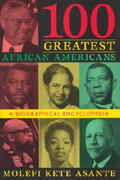I remember reading an analogy in PB Wilson’s Liberated Through Submission about the daily requirement of submission from all people. She talked about driving and the need to yield (submit) to other drivers, particularly when merging in traffic. It’s not that the other drivers are better than you; it’s just that for the safety of all, yielding is necessary. This helped me see my role in submission in marriage differently. Her description in no way gave a picture of a doormat to be stepped on, but an act necessary for the benefit of all. This is the picture that Scripture paints.
Men and women in general, and husbands and wives more specifically, are the same in value in Jesus Christ’s sight (Galatians 3:28), and He requires mutual consideration in marriage, but each spouse has been called to different functions. I believe this is so for there to be order in the marriage (1 Corinthians 11:3-12). Two main functions for the husband are provider and protector and for the wife, submitter and respecter.
The husband was called from the beginning to be a provider and protector when he was told to dress (work) and keep (protect) the garden (Genesis 2:5-17). God didn’t change his mind about man’s responsibilities in marriage when he laid out the duties of sanctifier, nourisher, cherisher, cleanser and lover in Ephesians 5. Each of these duties fall under provider and protector and require the husband to do so spiritually, physically and emotionally (See also 1 Corinthians 7:3, Colossians 3:19 and 1 Peter 3:7). The husband is compared to Jesus Christ and the woman to the church (Christians). So just like Christians are to submit to and respect Christ, so are wives to submit to and respect their husbands. Jesus Christ is the perfect provider and protector, and through Him a husband can seek to fulfill these roles in marriage. And Christ was perfect in submission and the respect of others, and through Him we can do the same for our husbands.
The major roles of each spouse don’t exclude the other from operating in the other’s roles from time to time when appropriate, but they are not the other’s primary responsibilities. So strong black woman, you don’t need no man to provide for or to protect you, but if you’re married this is what God requires that husbands do for you. Don’t let a bad attitude or a confusion of roles keep you from receiving blessings from your husband. Remember, each spouse seeking to fully operate in their function is biblical equality.
Copyright 2009 by Rhonda J. Smith

